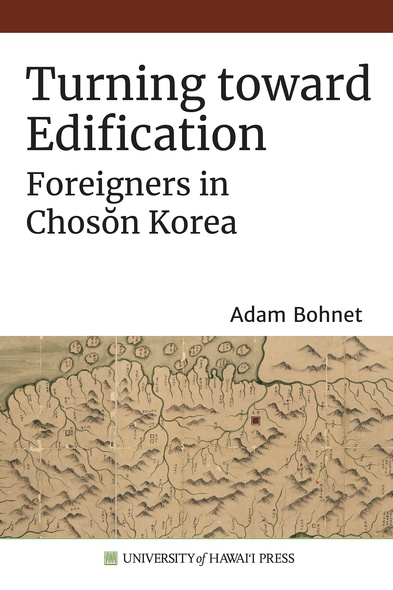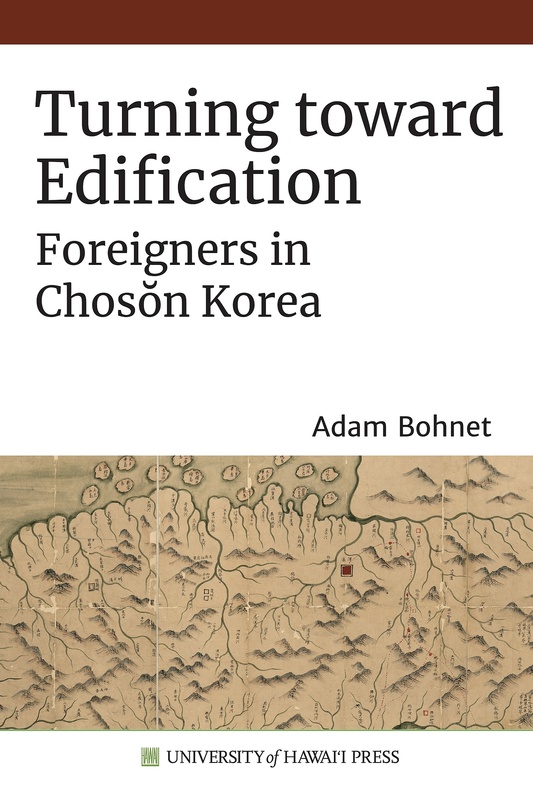
Turning toward Edification discusses foreigners in Korea from before the founding of Chosŏn in 1392 until the mid-nineteenth century. Although it has been common to describe Chosŏn Korea as a monocultural and homogeneous state, Adam Bohnet reveals the considerable presence of foreigners and people of foreign ancestry in Chosŏn Korea as well as the importance to the Chosŏn monarchy of engagement with the outside world. These foreigners included Jurchens and Japanese from border polities that formed diplomatic relations with Chosŏn prior to 1592, Ming Chinese and Japanese deserters who settled in Chosŏn during the Japanese invasion between 1592 and 1598, Chinese and Jurchen refugees who escaped the Manchu state that formed north of Korea during the early seventeenth century, and even Dutch castaways who arrived in Chosŏn during the mid-1700s. Foreigners were administered by the Chosŏn monarchy through the tax category of “submitting-foreigner” (hyanghwain). This term marked such foreigners as uncivilized outsiders coming to Chosŏn to receive moral edification and they were granted Korean spouses, Korean surnames, land, agricultural tools, fishing boats, and protection from personal taxes. Originally the status was granted for a limited time, however, by the seventeenth century it had become hereditary.
Beginning in the 1750s foreign descendants of Chinese origin were singled out and reclassified as imperial subjects (hwangjoin), giving them the right to participate in the palace-sponsored Ming Loyalist rituals. Bohnet argues that the evolution of their status cannot be explained by a Confucian or Sinocentric enthusiasm for China. The position of foreigners—Chinese or otherwise—in Chosŏn society must be understood in terms of their location within Chosŏn social hierarchies. During the early Chosŏn, all foreigners were clearly located below the sajok aristocracy. This did not change even during the eighteenth century, when the increasingly bureaucratic state recategorized Ming migrants to better accord with the Chosŏn state’s official Ming Loyalism. These changes may be understood in relation to the development of bureaucratized identities in the Qing Empire and elsewhere in the world during the seventeenth and eighteenth centuries, and as part of the vernacularization of elite ideologies that has been noted elsewhere in Eurasia.
Using an amazing array of primary and secondary sources, Adam Bohnet opens a new window into the history of Korea’s Chosŏn period. He shows, first of all, that Korea was not as isolated ethnically from its neighbors as has often been assumed. He also provides a useful prologue to an understanding of how Koreans have come to be defined as Koreans today. Finally, he shows how the Korean attitude toward China changed over the five centuries of Chosŏn, with respect for Chinese civilization not always paired with respect for individual Chinese who moved to the peninsula or for the governments that ruled the Chinese empire. In the process, he shows us how Chosŏn’s vision of its own role in the world, particularly its civilizing influence, also changed over the centuries.
Turning toward Edification: Foreigners in Chosŏn Korea, is a superb analysis of foreign immigrants and Korean responses to them during the Chosŏn period. This is the first serious English-language book on foreigners in Chosŏn Korea, a topic that is largely overlooked and yet extremely significant to our understanding of the early modern history of East Asia. By tracing the entire period of the Chosŏn dynasty, this book shows the fascinating transformation of Korean identity as it was constantly negotiated and reinterpreted throughout the Chosŏn period. Bohnet’s book covers the long trajectory of how foreigners initially moved to the Korean peninsula in the fourteenth century and how they were eventually incorporated into the hierarchical society of Chosŏn Korea by the nineteenth century. By exploring war and mobility around the Korean peninsula, Bohnet provides an excellent analysis of the dynamic interactions between foreign contacts and internal respondents in the formation of Chosŏn Korea.
Adam Bohnet is associate professor of history at King’s University College at the University of Western Ontario, in London, Canada.




